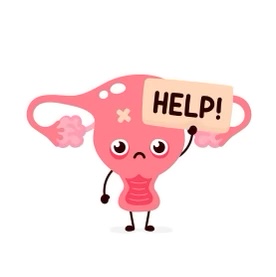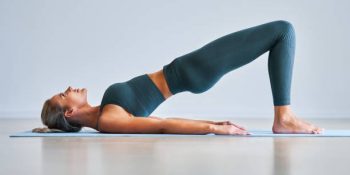
PCOS & Exercise
February 21, 2023
What is PCOS?
Polycystic Ovarian Syndrome (PCOS) is a hormonal condition that affects up to 20% of women. Women with PCOS tend to present with a range of features that can affect their metabolic, reproductive and mental health, leading to multiple chronic health conditions. These can present as:
- Metabolic: insulin resistance, pre-diabetes, metabolic syndrome, type 2 diabetes and cardiovascular risk factors such high blood pressure and cholesterol.
- Reproductive: irregular menstrual cycles, hirsutism (male like hair growth), infertility.
- Psychological: anxiety, depression, body image.
The cause of this condition is not completely understood, but genetics, family history, hormones and lifestyle factors play an important role.
How can exercise help?
Unfortunately, women with PCOS are 2-8 times greater risk of developing impaired glucose intolerance and type 2 diabetes compared to women without PCOS. Exercise is a well established therapy for preventing and managing chronic health disease in the general population and is no different for women living with PCOS. With the main guidelines for management calling for lifestyle interventions of dietary change and increasing our physical activity.
Specifically for PCOS, exercise can has been shown to improve:
- Insulin action, reducing the risk of diabetes
- Weight gain prevention
- Emotional wellbeing
- Energy levels, motivation and self-confidence
- Period regularity
- Fertility
- Fitness, muscle endurance and strength
Cardiovascular Training:
Moderate exercise like brisk walking, zumba, jogging, cycling or swimming are all great activities that can help with PCOS. This type of exercise increases your body’s sensitivity to insulin, which reduces your risk of cardiovascular disease and type 2 diabetes. Boosting fertility, improving mood and mental health.
You can also try high intensity interval training (HIIT). Intervals are involved, by swapping between short bouts of high intensity work and lower intensity recovery. It’s a time efficient way of boosting your cardiovascular fitness, with extra benefits for PCOS such as reducing excess testosterone, improving insulin resistance and body composition.
Eg: 20 seconds of star jumps followed by 10 seconds of rest. Following this with multiple exercises.
Strength training:
Strength training can improve PCOS symptoms. It involves exercise where there is a load working against your muscles. This type of exercise can improve the function of insulin in your body, and can also boost your metabolism by building more muscle mass. This simply means burning more calories while exercising, but also throughout the day even at rest!
- Bodyweight exercises (push ups, squats, planks etc)
- Weights (dumbbells, barbells, kettlebells, medicine balls etc)
- Gym machines
- Resistance bands
Yoga is a mind and body practice. Various styles of yoga combine physical postures, breathing techniques, and meditation or relaxation. It’s great for improving mental health and has been shown to assist in the regulation of hormones, menstrual cycles and metabolic markers.
Helpful Tips:
- At least 30 minutes or more of physical activity a day can help with weight management, symptoms of depression and anxiety, as well as improving frequency of menstrual cycles and ovulation.
- There is no one-size-fits- all approach to PCOS. Finding something you love and enjoy as this can help boost motivation and keep physical activity sustainable.
- Incidental activity can be just as important as intentional activity
- Talk to a dietician to understand how nutrition can help assist in the management of PCOS.
Getting Started
Chat with one of our accredited exercise physiologists today about getting started with a tailored program for you or join one of our group classes and meet like minded people who are all trying to improve their health and feel the best that they can.
Visit us in Springwood or give us a call on 4707 7671
Other News
Why Runners should do Pilates
Why runners should do Pilates? Simple, it will make you a better run...
June 23, 2023
Managing POTS through exercise
Struggling with exercise since being diagnosed with POTS? This one’s for ...
April 24, 2023
Exercise in Stroke Rehabilitation!
Strokes occur when blood supply to your brain is stopped. This can be tempo...
March 10, 2023







